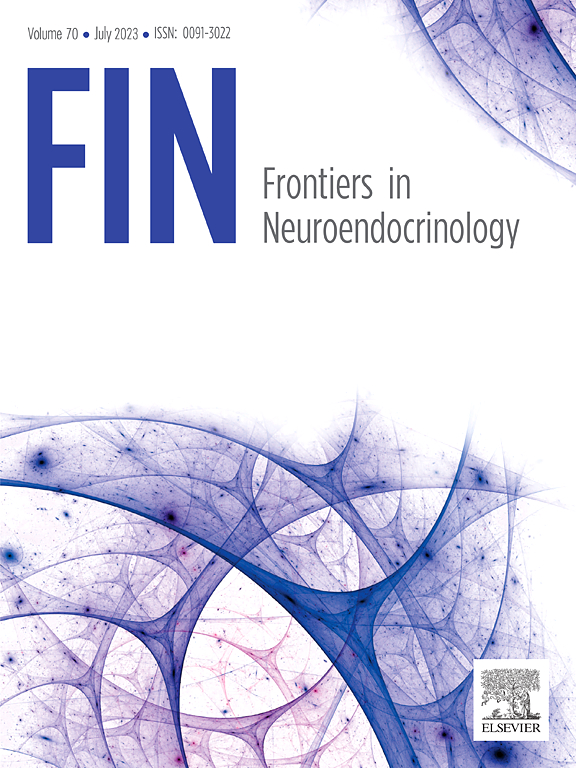Semaglutide与进行性神经退行性疾病的发病机制:线粒体的核心作用
IF 6.7
1区 医学
Q1 ENDOCRINOLOGY & METABOLISM
引用次数: 0
摘要
虽然线粒体提供关键的能量资源,但线粒体功能障碍可导致代谢和神经退行性疾病。原发性线粒体疾病(如Leigh综合征)均与深度神经退行性变相关。最近的研究还表明,线粒体功能障碍是进行性神经退行性疾病的核心特征,特别是阿尔茨海默病、帕金森病、肌萎缩侧索硬化症和亨廷顿病。胰高血糖素样肽-1受体激动剂semaglutide除了对代谢性疾病有深远的影响外,还具有显著的神经保护功能,并可能限制一种或多种代谢性疾病的进展。这些观察结果至少可以部分解释为这种药物对线粒体功能和能量产生的影响。总的来说,这些观察结果强调了能量稳态破坏是神经退行性疾病的一个关键特征,并为开发急需的新神经药物策略提供了新的靶点。本文章由计算机程序翻译,如有差异,请以英文原文为准。

Semaglutide and the pathogenesis of progressive neurodegenerative disease: the central role of mitochondria
While mitochondria provide critical energy resources, mitochondrial dysfunction can lead to both metabolic and neurodegenerative disorders. Primary mitochondrial disorders (e.g., Leigh syndrome) are uniformly associated with profound neurodegeneration. Recent studies have also implicated mitochondrial dysfunction as a central feature of progressive neurodegenerative diseases, notably Alzheimer’s disease, Parkinson’s disease, Amyotrophic Lateral Sclerosis, and Huntington’s Disease. In addition to its profound impact on metabolic disease, the glucagon-like peptide-1 receptor agonist, semaglutide, has significant neuroprotective features and may limit the progression of one or more of these disorders. These observations might be explained at least in part by the impact of this drug on mitochondrial function and energy production. Collectively, these observations highlight disrupted energy homeostasis as a critical feature of neurodegenerative disease and suggest novel targets for the development of much-needed new neuropharmaceutical strategies.
求助全文
通过发布文献求助,成功后即可免费获取论文全文。
去求助
来源期刊

Frontiers in Neuroendocrinology
医学-内分泌学与代谢
CiteScore
13.30
自引率
6.80%
发文量
62
审稿时长
68 days
期刊介绍:
Frontiers in Neuroendocrinology (FIN) publishes a wide range of informative articles including comprehensive reviews, systematic reviews, opinion pieces, and meta-analyses. While the majority of reviews are invited, we also embrace unsolicited reviews and meta-analyses, as well as proposals for thematic special issues, provided they meet our rigorous quality standards. In addition, we encourage authors to submit commentaries that concisely present fresh ideas or offer further analysis to delve deeper into the implications of an article published in our journal.
 求助内容:
求助内容: 应助结果提醒方式:
应助结果提醒方式:


